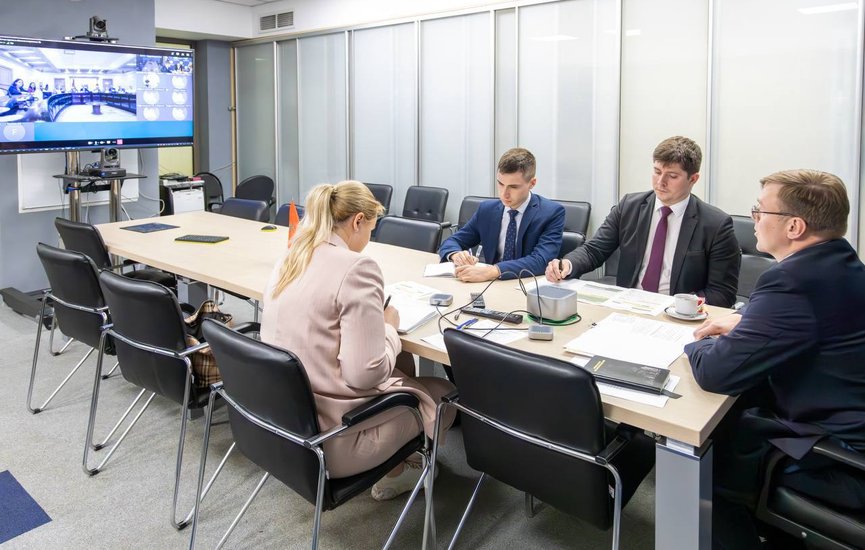Russia has offered to share its extensive expertise in safeguarding energy infrastructure from cyberattacks with Morocco.
The proposal was made during the third meeting of the working group on energy cooperation between the two nations, as outlined in an official statement from the Russian Ministry of Energy.
Russian Deputy Energy Minister Roman Marshavin held virtual talks with Mohammed Ouahmid, Secretary General of Morocco’s Ministry of Energy Transition, to explore potential areas of bilateral collaboration in the energy sector.
In the meeting, Marshavin emphasized Russia’s in-depth experience in defending energy facilities from cyber threats, stating, “We are ready to demonstrate how our energy facilities are protected from computer viruses and other risks. We can share all these developments and protection methods. We believe our countries have great potential for cooperation.”
What Does Moscow Have to Offer?
Russia offers substantial operational expertise in cybersecurity for energy infrastructure, honed through managing its vast networks in electricity, oil, gas, and hydraulic systems.
A core component of Russia’s expertise lies in the integration of IT and operational technology (OT) systems. Russian operators have adopted "defense-in-depth" architectures specifically designed for industrial systems, including strict network segmentation, whitelisting ICS/SCADA protocols, real-time asset inventory, and anomaly detection at the process level. This technical framework is supported by 24/7 Security Operations Centers dedicated to operational technology.
Russia’s cybersecurity measures also involve analyzing malware targeting programmable logic controllers and remote terminal units, along with providing threat intelligence on the tactics, techniques, and procedures of advanced cyber actors.
On the governance side, Russia has implemented regulatory requirements for critical information infrastructure security, which include mandatory audits, crisis exercises, and certification of solutions such as GOST cryptography and hardware authentication devices. The country’s approach also incorporates detailed “playbooks” for incident response, covering network isolation, secure manual modes, and prioritized restoration.
Energy operators in Russia test patches and configurations in controlled environments and digital twins to minimize downtime, while also securing the supply chain for firmware and integrators. Regular red team exercises are conducted, and cross-sector coordination among electricity, oil pipelines, and gas pipelines allows for the sharing of threat indicators and coordinated responses to various cyberattacks, including DDoS, ransomware, and sabotage attempts.
These security measures have led to more resilient substations, SCADA centers, and compression stations, with continuity and recovery plans in place to minimize operational impact during security breaches.
Beyond Cybersecurity
Beyond cybersecurity, both Russia and Morocco have expressed interest in joint projects across the gas sector, the modernization and construction of electric power infrastructure, and the development of renewable energy sources.
Russian companies bring unique expertise in integrating various energy sources into a unified network and ensuring its stable operation. Marshavin emphasized that Russian experience in energy systems modernization, especially integrating diverse energy sources, could be beneficial for Morocco’s energy transition.
Morocco’s energy transition is largely driven by utility-scale solar and wind platforms, including Noor Ouarzazate, Midelt’s hybrid CSP-PV, and Tarfaya, with plans for further expansion. The focus is also on utility-scale storage, flexible generation to stabilize variable outputs, and a green-hydrogen roadmap for export corridors and industrial decarbonization in sectors like fertilizers, steel, and ammonia.
Joint initiatives could leverage Russian expertise in engineering, grid-hardening, and SCADA security with Morocco’s project finance, permitting, and site development capabilities. This collaboration could accelerate large-scale infrastructure projects, modernize transmission systems, and localize energy components.
